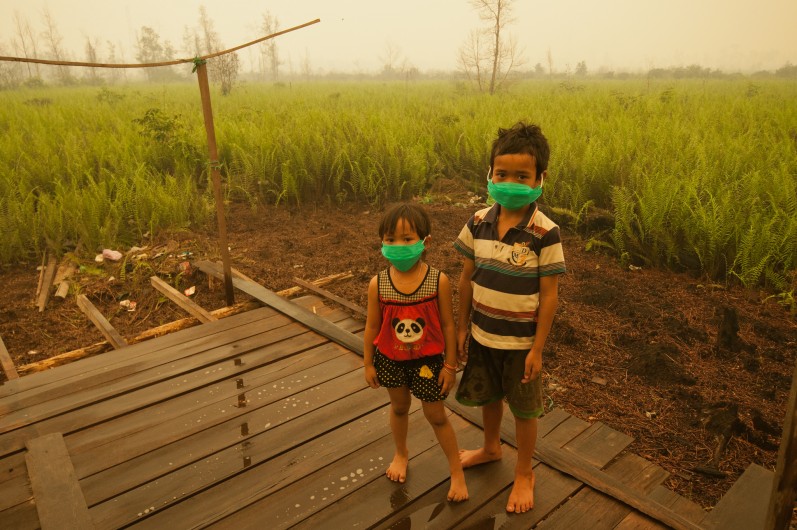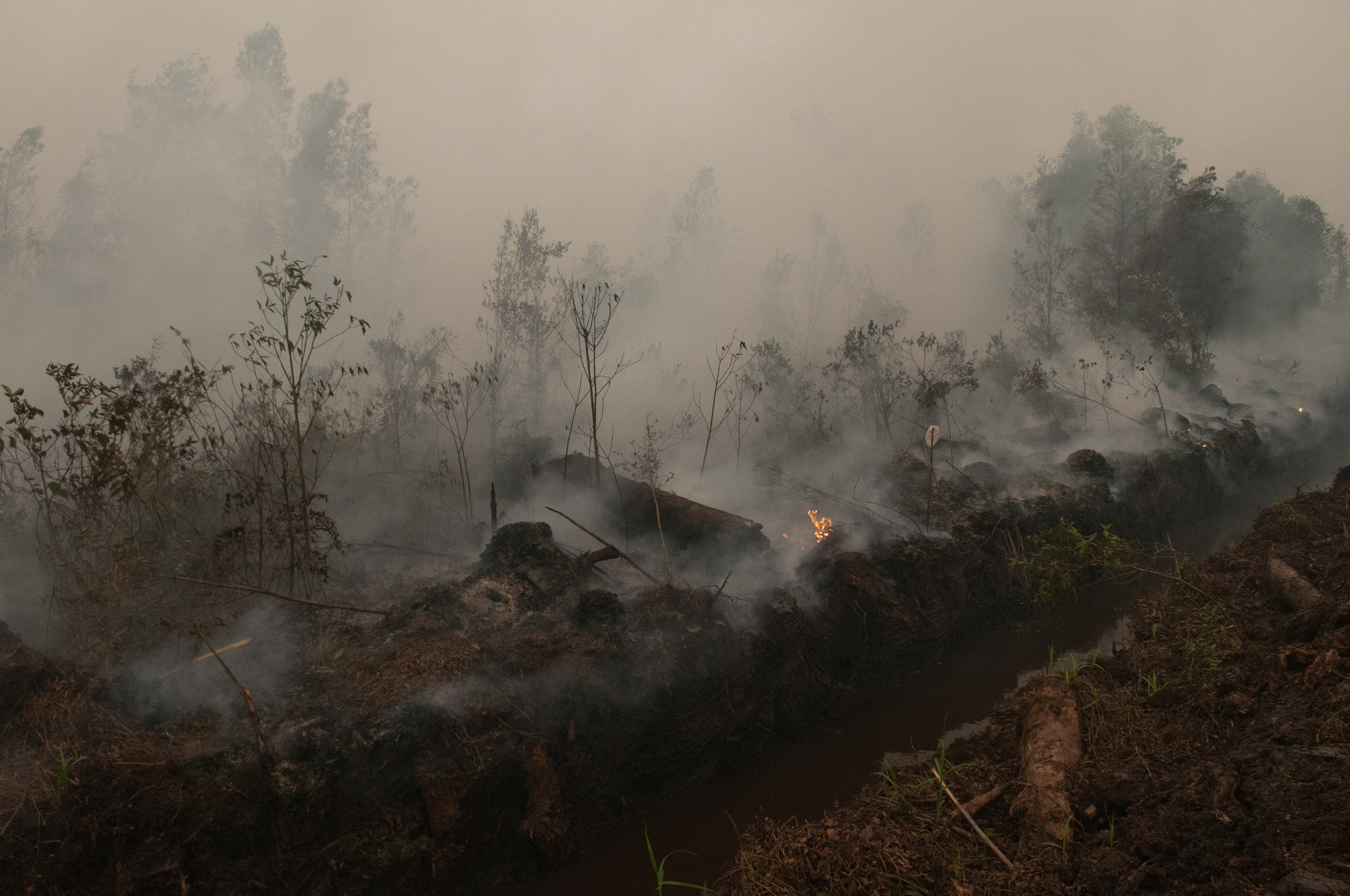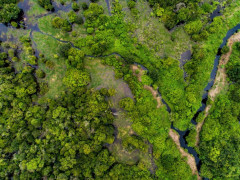Indonesia's Deforestation Dropped 60 Percent in 2017, but There's More to Do
By Hidayah H, Reidinar J, Nirarta S and Arief WExamining the Supreme Court Ruling Annulling Peat Protection Regulations

The Indonesian Supreme Court decision to revoke a ministerial regulation on peatland protection triggered a heated debate among business actors, labor unions, the MoEF and environmentalists. On one hand, the regulation is crucial to avoiding further peatland degradation, which could potentially lead to forest fires. On the other hand, business actors and trade unions were concerned about potential economic losses and lost jobs due to changes to companies’ concessions in protected areas.
This article was previously published on WRI Indonesia’s official website. It has been republished on Pantau Gambut with the author’s approval.
In 2015, Indonesia suffered from a widespread fire, more than half of which occurred in peatland areas. In response to this disaster, Indonesia continues to increase its efforts to protect and restore this carbon-rich ecosystem. Changing the way Indonesia manages peatland is crucial to realizing the country’s commitment to reducing greenhouse gas emissions and preventing forest fires. In the first article in this series on peatland governance, we elaborated on the legal aspects of the cancellation of Ministerial Regulation No. 17/2017 on Timber Estates.
Indonesia’s peatland governance efforts have attracted worldwide attention. In a recent meeting at COP 23, former Vice President of the United States Al Gore complimented Indonesia’s commitment to restoring degraded peatland as a component of climate change mitigation efforts.
This positive sentiment was not undeserved; the government has invested considerably in diverse restoration activities, from peat mapping to establishing a Desa Peduli Gambut (peat care village). Another effort that showed progress was the Ministry of the Environment and Forestry’s (MoEF’s) issuance of four regulations regarding peatland protection. These followed the 2016 Presidential Regulation prohibiting companies from planting in peatlands, which were categorized as conservation areas.
Despite the progress made, peat restoration efforts have encountered obstacles. The Indonesian Supreme Court annulled the Environment and Forestry Ministerial Regulation No. 17/2017, which required companies to devote concession lands categorized as peat ecosystems to protection and restoration through wetting and planting. According to the regulation, if the company’s concession was more than 40 percent protected peat area, they were entitled to appeal for a land swap.
Challenges
The Court’s decision to revoke this ministerial regulation triggered a heated debate among business actors, labor unions, the MoEF and environmentalists. On one hand, the regulation is crucial to avoiding further peatland degradation, which could potentially lead to forest fires. On the other hand, business actors and trade unions were concerned about potential economic losses and lost jobs due to changes to companies’ concessions in protected areas. Although Ministerial Regulation No. 40/2017 promises that the government will replace those concession lands through land swaps, business actors and laborers remained worried about the availability and location of the new concession land.
In June 2017, a labor union in Riau Province, KSPSI, demanded that the Supreme Court review the ministerial regulation, highlighting that it violated the Forestry Act of 1999 and Spatial Planning Act of 2007. On October 2, 2017, the Supreme Court ruled in favor of KSPSI and annulled the ministerial regulation.
Several environmental activists decried this verdict as a significant setback in Indonesia’s target to restore two million hectares of peatland area by 2020. Roughly 1.4 million hectares of the peatland that must be restored fall within company concessions. However, environmental law experts and MoEF representatives maintained that this verdict did not change companies’ obligation to restore peatlands within their concessions, as mandated by the 2016 Presidential Regulation. In this light, the annulment of Ministerial Regulation No. 17/2017 was a loss for companies, because it meant they were no longer entitled to request land compensation for peatland restoration on their concessions.
Understanding the Court’s Verdict
The Supreme Court’s main concern in their ruling was that Ministerial Regulation No. 17/2017 aimed to establish peat ecosystems as a new category in forest zoning. According to the 1999 Forestry Act, these zoning categories included conservation, protection, and production. The Act did not give the MoEF the authority to manage peatland. Therefore, the court viewed Ministerial Regulation No. 17/2017 as a violation of the 1999 Forestry Act. This consideration not only caused apprehension, but also highlighted the Supreme Court’s misconceptions about the extent of the authority of the MoEF.
First, the court should consider that the MoEF encompasses four state institutions: the Ministry of Forestry, the Ministry of the Environment, the National Emissions Reduction from Deforestation and Forest Degradation Agency (BP-REDD+), and the National Council on Climate Change. As stated in Presidential Regulation No. 16/2015, the MoEF is empowered to execute the mandate and functions of all four organizations, including by issuing regulations regarding the environmental aspects of forest and other natural areas. The mandate and functions of these four organizations also authorize the MoEF to regulate all public and private activities that impact the environment.
Second, the Supreme Court verdict only briefly mentioned Regulation No. 32/2009 regarding the Protection and Management of the Environment. Instead, they focused on the Forestry Act of 1999. This focus shows the court’s unawareness of the importance of these acts to all environmental activities in peatlands, forestry areas, Other Utilization Areas (APLs), and beyond. Incomprehensive legal examination in the decision to revoke Ministerial Regulation No. 17/2017 created legal uncertainty for communities affected by irresponsible peat ecosystem management.
Preventing a Possible Domino Effect
The Supreme Court plays a key role in good governance, because it has the authority to harmonize contradictory legislation.
Not only does the revocation of Ministerial Regulation No. 17/2017 significantly impact peatland restoration progress, but the Court’s decision could set a legal precedent that starts a domino effect leading to the nullification of other ministerial regulations.
Therefore, it is very important for the Supreme Court judges to correct their misunderstanding of peatland issues and the scope of the MoEF’s authority.
NGOs and affected communities likewise have an important role in overseeing court proceedings, especially given that this Supreme Court verdict was finalized without an opportunity to appeal. Monitoring the process from the early stages allows NGOs and affected communities to engage the public in the trial outcome through mass media. In this way, together we can prevent the possibility of a domino effect and continue to apply existing regulations to improve peatland governance.




